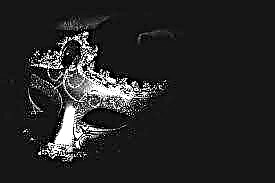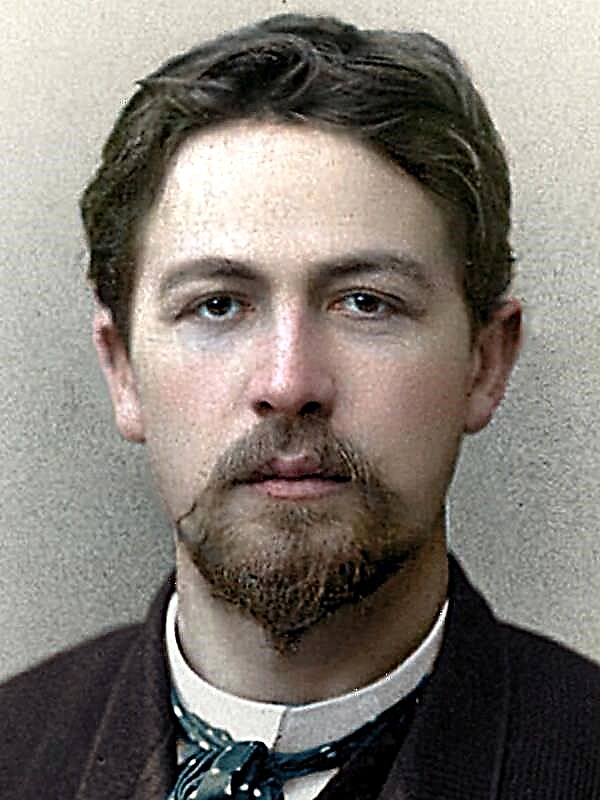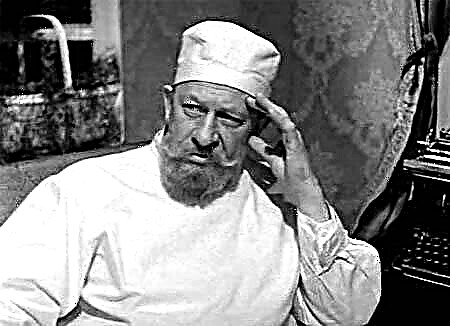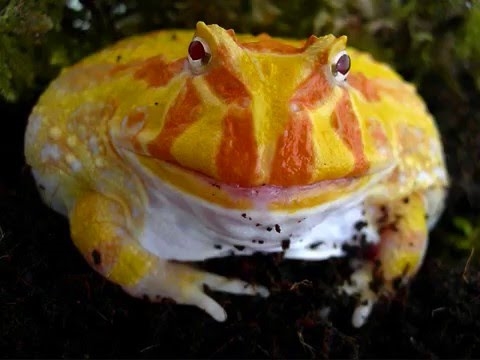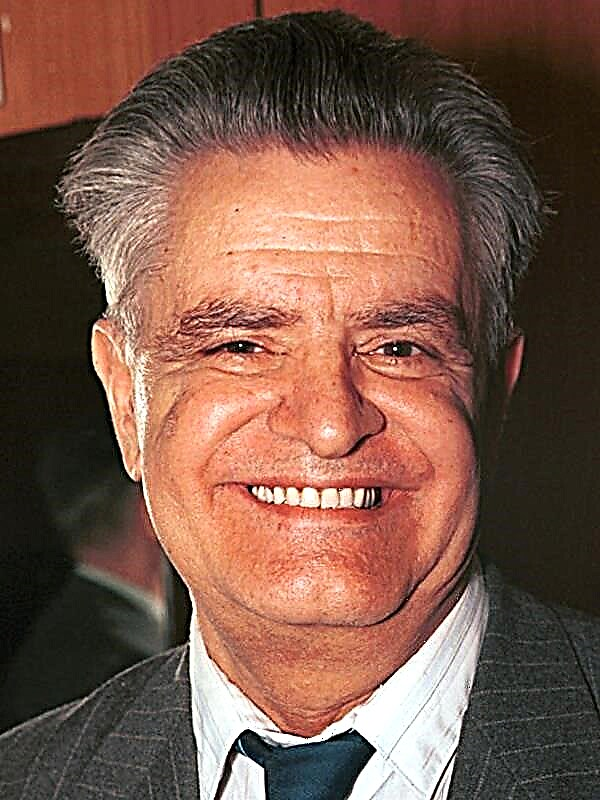: Morphine was given to the doctor to relieve acute abdominal pain. The pain from the fact that the girl had recently abandoned her had also gone away with her. He began to inject himself in order to forget himself, but he sucked himself in, could not get down, and committed suicide.
The narration is on behalf of the young doctor Vladimir Bomgard.
In the winter of 1917, the young doctor Vladimir Bomgard was transferred from the deaf Gorelovsky district to a hospital in a county town and was appointed head of the children's department.
Vladimir Mikhailovich Bomgard - a young doctor who worked as a zemstvo doctor for a year and a half, experienced, responsive
A year and a half, Dr. Bomgard treated various diseases, performed complex operations in Spartan conditions, and took a difficult birth. Now he was resting, shrugging off the burden of responsibility, slept calmly at night, not afraid that he would be picked up and taken away "into darkness into danger and inevitability."
Happiness is like health: when it is there, you do not notice it. But when the years pass, how do you remember happiness, oh, how do you remember!
Several months have passed. By February 1918, Bomgard began to forget "his distant site", a kerosene lamp, snowdrifts and loneliness. Only occasionally, before going to bed, he thought of a young doctor who is now sitting in this wilderness instead of him.
By May, Bomgard expected to work out his experience, return to Moscow and say goodbye to the province forever. However, he did not regret that he had to undergo such a hard practice in Gorelovo, believing that she made him a "brave man."
One day, Bomgard received a letter written on the letterhead of his old hospital. A place in Gorelovo went to his university friend Sergei Polyakov. He “fell ill badly and badly” and asked his friend for help.

Sergey Polyakov - Dr. Bomgard's university friend, a gloomy person, prone to migraines and depression
Bomgard asked the chief doctor, but didn’t have time to leave - at night Polyakov, who was shot from the Browning, was brought to the county hospital. He died, having managed to give Bomgard his diary. Returning to himself, Bomgard began to read.
Entries in the diary began on January 20, 1917. After distribution at the institute, a young doctor Polyakov got to a remote Zemsky district. This did not upset him - he was glad to escape into the wilderness due to personal drama. Polyakov was in love with the opera singer, lived with her for a year, but recently she left him, and he could not survive it.
Together with Polyakov, the married paramedic, who lived with his family in the outhouse, and the midwife Anna, a young woman whose husband was in German captivity, worked on the site.

Anna Kirillovna - midwife, “secret wife” Polyakova, sweet and smart middle-aged woman
On February 15, 1917, Polyakov suddenly began to have sharp pains in the stomach, and Anna was forced to inject him with a portion of a one percent solution of morphine. After the injection, Polyakov slept soundly and deeply for the first time in several months, without thinking about the woman who had deceived him.
From this day on, Polyakov began stabbing himself with morphine in order to alleviate mental suffering. Anna became his "secret wife."She was very sorry that she injected him that very first dose of morphine and begged him to leave this occupation. In moments when Polyakov felt ill without a new dose, he understood that he was playing with fire, and promised himself to stop all this, but after the injection he felt euphoric and forgot about his promise.
Somewhere in the capital, a revolution was raging, the people overthrew Nicholas II, but these events of Polyakov were of little concern. On March 10, he began hallucinations, which he called "double dreams." After these dreams, Polyakov felt “strong and vigorous,” his interest in work arose, he did not think about his former mistress, and was absolutely calm.
Considering that morphine had a beneficial effect on him, Polyakov did not intend to refuse him and quarreled with Anna, who did not want to prepare new portions of morphine solution for him, and he did not know how to cook it, since this was the responsibility of the paramedic.
Indeed, morphium hidrochloricum is a formidable thing. The habit of it is created very quickly. But a little habit is not morphinism ...
In April, the supply of morphine on the site began to run out. Polyakov tried to replace him with cocaine and felt very ill. On April 13, he finally admitted to becoming a morphine addict.
By May 6, Polyakov was already injecting himself two syringes of a three-percent solution of morphine twice a day. After the injection, it still seemed to him that nothing terrible was happening, and his dependence on efficiency did not affect it, but, on the contrary, increased it. Polyakov had to go to the county town and get more morphine there.Soon it began to embrace the anxious and dreary state inherent in morphinists.
Death from thirst is heavenly, blissful death compared to thirst for morphine.
Polyakov’s dose increased to three syringes.
After the recording, dated May 18, two dozen pages were cut from the notebook. The next record Polyakov made November 14, 1917. During this period, he tried to be treated and spent some time in a Moscow psychiatric clinic.
Using the shooting that began in Moscow, Polyakov stole morphine in the clinic and fled. The next day, revived after the injection, he returned to give hospital clothes. The psychiatrist did not forcibly hold Polyakov, confident that sooner or later he would again be in the clinic, but already in a much worse condition. The professor even agreed not to report anything to his place of service.
On November 18, Polyakov was already "in the wilderness." He was weak and emaciated, walked on a cane, hallucinations haunted him. The percentage of morphine in the solution increased, vomiting began. The medical assistant guessed everything, and Anna, who was caring for Polyakov, begged him to leave.
December 27 Polyakov was transferred to the Gorelovsky site. He firmly decided from January 1 to take a vacation and return to the Moscow clinic, but then he realized that he could not stand the treatment, and did not want to part with his "crystalline soluble god."
Now, twice a day, he injected himself with three syringes of a four percent solution of morphine. From time to time, Polyakov tried to abstain, but he did not succeed well. Morphine brought Anna.Due to injections on Polyakov's forearms and hips, non-healing abscesses appeared, and visions drove him crazy.
On February 11, Polyakov decided to turn to Bomgard for help and sent him a letter. The entries in the diary became jerky, confused, with numerous abbreviations. On February 13, 1918, after a fourteen-hour abstinence, Polyakov left the last entry in his diary and shot himself.
In 1922, Anna died of typhus. In 1927, Bomgard decided to publish Polyakov’s diary, believing that his notes would be useful and instructive.

